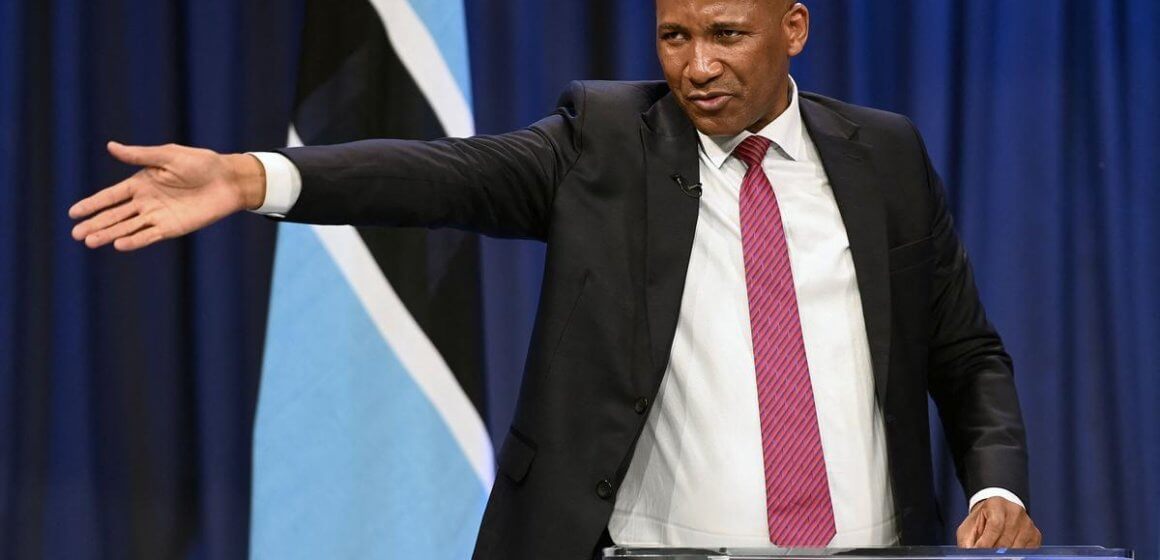|
LISTEN TO THIS THE AFRICANA VOICE ARTICLE NOW
Getting your Trinity Audio player ready...
|
Botswana’s newly elected president, Duma Boko, has taken a bold step in addressing the country’s longstanding challenge with undocumented Zimbabwean immigrants. Just days after unseating the ruling party that held power for nearly six decades, Boko, 54, proposed a plan to grant temporary work and residence permits to undocumented Zimbabweans residing in Botswana. He said this will boost Botswana’s economy and help address pressing social issues.
Botswana is home to one of the largest populations of Zimbabweans who have fled their country due to economic collapse, hyperinflation, and political unrest. For two decades, thousands have crossed the porous border between the two countries in search of better opportunities. While some Zimbabweans travel back and forth for temporary work, many live in Botswana without documentation, making them vulnerable to limited access to essential services and frequent deportations.
Statistics indicate that Zimbabweans account for 98% of Botswana’s “irregular migrants.” Between 2021 and 2023, government records show 13,189 out of 13,489 deported immigrants were from Zimbabwe. Every day, Botswana’s police conduct deportations of Zimbabweans, often due to the lack of legal documentation. Despite this, many Zimbabweans occupy critical roles in Botswana’s labor market, working in sectors that local citizens generally avoid, such as domestic work and agriculture.
However, Boko said that these migrants often perform “jobs that would otherwise not get done.” He explained that legalizing their stay would not only benefit the labor market but also reduce resentment toward Zimbabweans. “Right now, they live outside the law, which pushes them toward crime and increases social tension,” Boko said.
However, this decision is likely to stir controversy. Many citizens fear that easing restrictions on Zimbabweans could increase migration and strain resources. Last year, public backlash followed a government proposal to use ID cards instead of passports for travel between Botswana and Zimbabwe.
Boko, however, sees a silver lining. He argues that Zimbabwean immigrants bring valuable skills to Botswana’s construction and technical fields—skills that are in high demand yet in short supply among locals. “In every construction site, you’ll find skilled Zimbabweans doing jobs like welding and plumbing. If we legalize their stay, we can benefit from their expertise and, in turn, initiate a skills-transfer program for our citizens,” Boko explained.
Since his victory, Boko has been vocal about his plans to revitalize Botswana’s economy. Among his top priorities is negotiating a new deal with De Beers, the global diamond giant, which he believes will secure the country’s financial future. “With guaranteed diamond revenue, investor confidence will grow, bringing more capital into Botswana,” he said. He aims to create 100,000 jobs annually over the next five years. He said that almost 30% of Botswana’s 2.4 million people are unemployed—a figure he called a “ticking time bomb.”
Alongside job creation, Boko envisions a culture of entrepreneurship for Botswana’s youth, encouraging them to “become entrepreneurs, employ themselves, and employ others.” For this to happen, he emphasized the need for government support, especially in making affordable finance and markets accessible.
Boko, a human rights lawyer and founder of the opposition Umbrella for Democratic Change (UDC) party, has positioned himself as a leader focused on inclusivity. Known for his informal approach, he frequently encourages close interactions with citizens and colleagues. His inauguration is set for Friday at Gaborone’s national stadium, with the day declared a public holiday to mark the historic event.











LEAVE A COMMENT
You must be logged in to post a comment.